
In this video documentary, we discuss the history of socialism from its origins in the early 1800’s to modern day democratic socialists and the struggle between collectivist socialist ideas vs. free market capitalism. We discuss the appeal of socialism vs. capitalism and the benefits and pitfalls of each.
As the 21st century unfolds, our most fantastic dreams are in reach. Advances in medicine promise to slow aging and extend the human life span. AI and robotics will supplement or replace human labor. Global poverty rates have dropped to all time lows and human prosperity has reached its highest peak — all thanks to free market capitalism.
“Capitalism does a number of things very well: it helps create an entrepreneurial spirit; it gets people motivated to come up with new ideas, and that’s a good thing.” ~ Bernie Sanders
At the same time, the gap between rich and poor grows wider. Greater wealth is concentrated in fewer hands. And there are increasing calls to establish a more equitable society based on a philosophy many thought crumbled with the Berlin Wall — socialism.
In 1949, Albert Einstein penned an essay titled “Why Socialism?,” in which he made a moral argument in favor. But he cautioned — a system had to be in place to protect individual rights, because an all powerful bureaucracy could lead to the complete enslavement of the individual.
With socialism discredited by 70 years of failure and millions of lives lost, one wonders whether Einstein would hold the same view today. Yet the question is still a good one – why socialism?
“The hardest thing to explain is the glaringly evident which everybody had decided not to see.” ~ Ayn Rand

In simplest terms, Merriam Webster defines socialism as “a system of society or group living in which there is no private property, in which the means of production are owned and controlled by the state.” It’s opposite is capitalism — “An economic system characterized by private or corporate ownership of capital goods, by investments that are determined by private decision, and by prices, production, and the distribution of goods that are determined mainly by competition in a free market.”
Since its beginnings, socialism has evolved into a spectrum of ideas focused on state ownership or control of the means of production for the common good. At one extreme is complete control seized by violent revolution and communist dictatorship — on the other is something more benign — Democratic Socialism, that calls for a gradual transformation of society by democratic means.
Though hard core communists remain in groups such as ANTIFA, most of today’s socialists are Democratic Socialists. They generally accept the free market economy, but think the government should do more for the common good. Their opponents fear concentrating too much power in the hands of government could cripple the economy and erode personal freedom.
“Concentrated power is not rendered harmless by the good intentions of those who create it.” ~ Milton Friedman
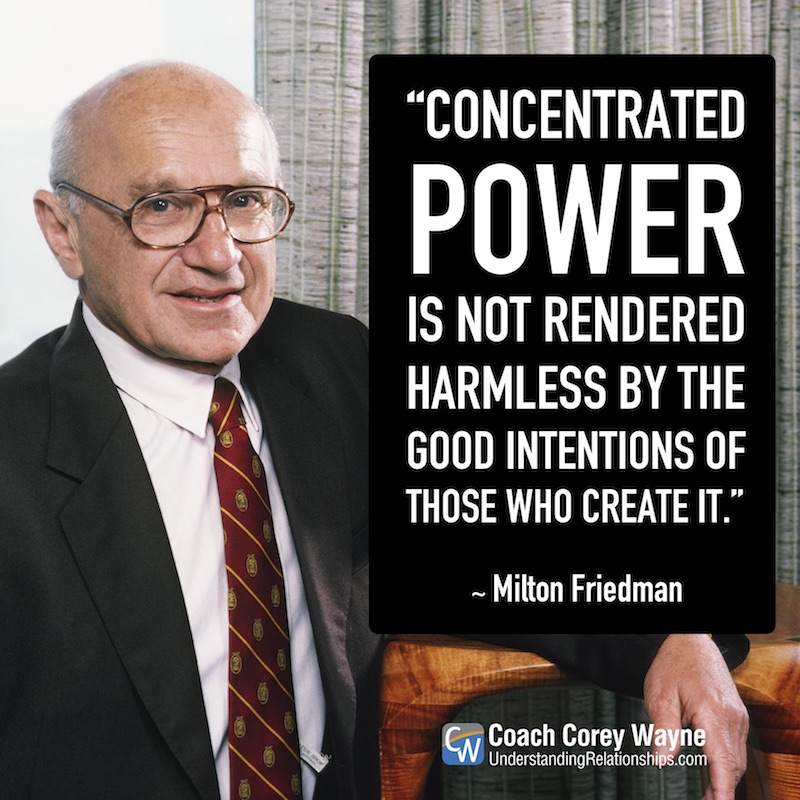
In Corey Wayne’s book, “Mastering Yourself,” he talks about the importance of freedom, self-reliance and individuality, because it is only when we take responsibility for our own life and actions that we can truly be free to reach our full potential.
“The only freedom which deserves the name, is that of pursuing our own good in our own way, so long as we do not attempt to deprive others of theirs or impede their efforts to obtain it.” ~ John Stuart Mill
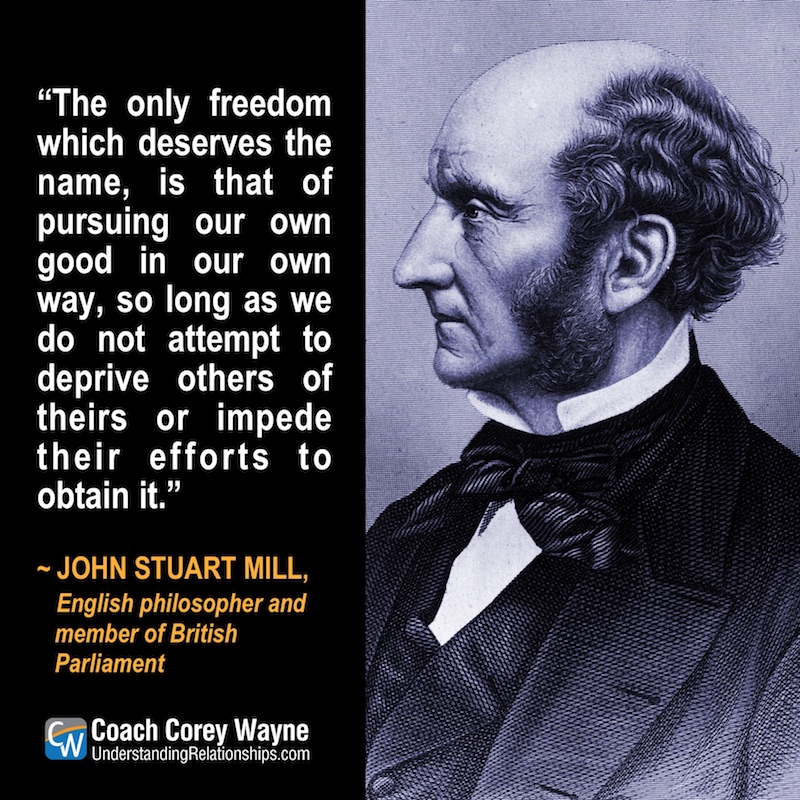
This is why the Founding Fathers designed the U.S. Constitution to protect our individual right to life, liberty and the pursuit of happiness — to shield people from over-reaching government, and empower them to enjoy the fruits of their own labor.
“To take from one, because it is thought that his own industry and that of his father’s has acquired too much, in order to spare to others, who, or whose fathers have not exercised equal industry and skill, is to violate arbitrarily the first principle of association — the guarantee to every one of a free exercise of his industry and the fruits acquired by it.” ~ Thomas Jefferson
Even though many find this truth self-evident, Socialism remains one of the most influential political ideas in history. Its promise of harmony and abundance for all if only property is shared and distributed equally intoxicates intellectuals and gives hope to the impoverished. At its core lies the central idea that human society is perfectible — an idea socialism’s opponents find dangerously at odds with human nature.
Everyone likes free stuff, but the truth is it always comes at a price. The more we rely on government to fulfill our needs, the less self-reliant we will be. And the more we are at the mercy of others for happiness, the less likely we’ll ever realize our true potential.
“Whatever crushes individuality is despotism, no matter what name it is called.” ~ John Stuart Mill
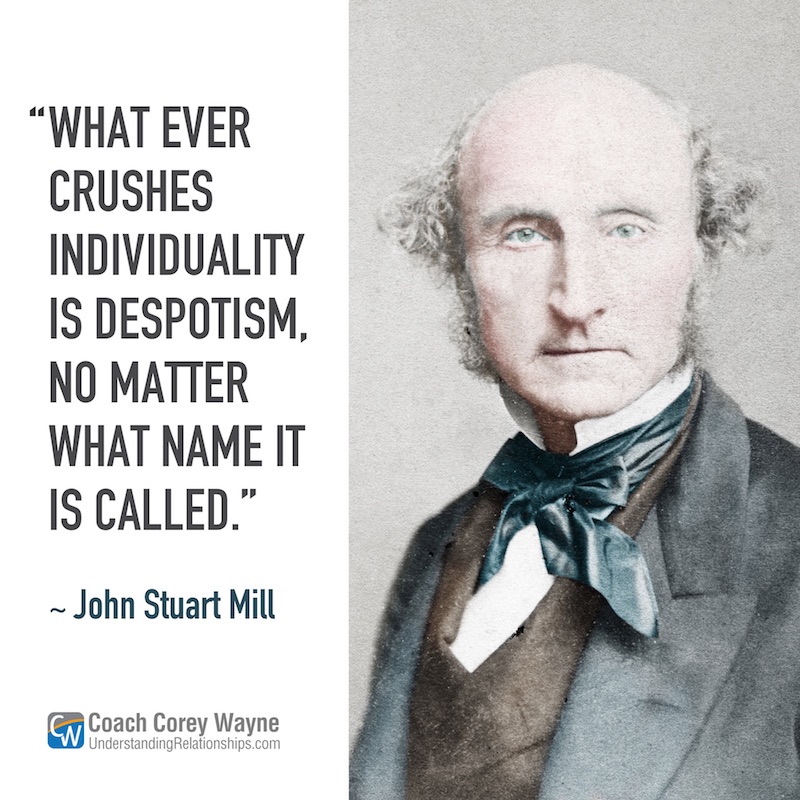
Socialist ideas of government evolved from new thinking during the Age of Enlightenment. The French and American Revolutions spawned fresh ideas about the potential of human society if only old beliefs of religion and superstition were replaced with science and reason.
As advances in science fueled the Industrial Revolution, more people moved into cities to work in factories. Workers were forced to toil under harsh conditions and suffer in overcrowded slums while the factory owners got rich off their labor. It was on this ground that socialism took root.
News Report: “Then the industrial frontier was pierced. With the development of the railroad, scattered communities were drawn together. Commerce was stimulated. Americans needed things, all kinds of things, and the frontiersmen of industry found new, faster, better ways of supplying these things. Machines replaced hands, new machines replaced old machines. New inventions, the electric light, automobile, telephone, started as luxuries. Then, as they were made better and cheaper, became commonplace. Modern agriculture and building machinery released, man to man, the new production machinery. America became the industrial empire of the world. A vast factory, working day and night to meet a seemingly endless demand. Production was a problem. It went up, up, up, faster, faster, faster.”
The first experiment in socialism happened in the American wilderness in 1825. British industrialist Robert Owen founded a commune called New Harmony on the banks of the Wabash river in Indiana. His aim was to free mankind from the three evils he blamed for humanity’s troubles — traditional religion, conventional marriage and private property.
“I was forced, through seeing the error of their foundation, to abandon all belief in every religion which had been taught to man. But my religious feelings were immediately replaced by the spirit of universal charity — not for a sect, or a party, or for a country or a colour — but for the human race, and with a real and ardent desire to do good.” ~ Robert Owen
New Harmony attracted intellectuals enamored by Owen’s ideas — to do away with private property to achieve equality — and to perfect the human character by controlling education and guiding daily behavior.
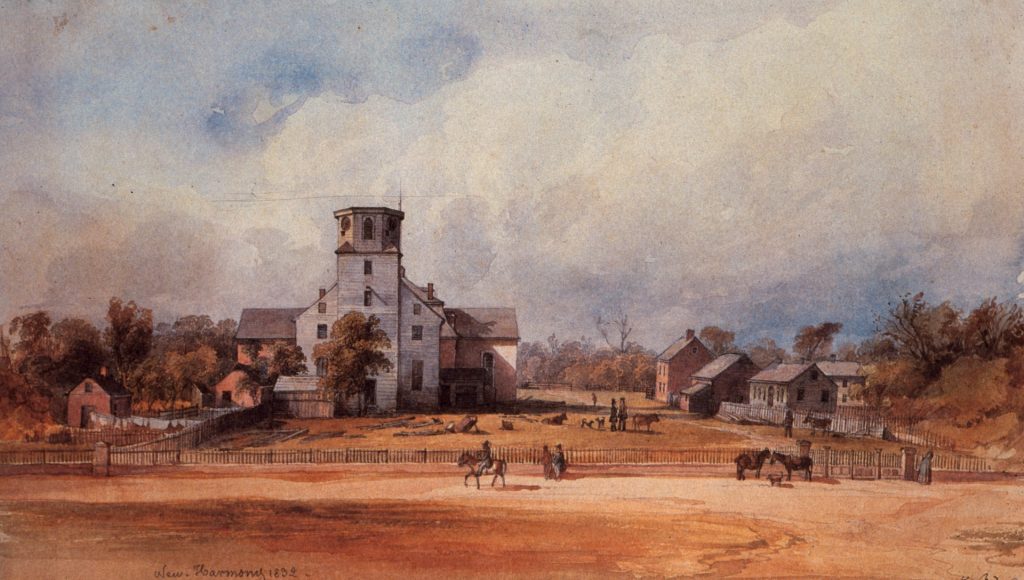
“Is it not the interest of the human race, that every one should be so taught and placed, that he would find his highest enjoyment to arise from the continued practice of doing all in his power to promote the well-being, and happiness, of every man, woman, and child, without regard to their class, sect, party, country or colour?” ~ Robert Owen
But after two years, the commune was struggling to survive. There were too many thinkers and not enough doing the actual work. Owen’s excuse was he didn’t have the right people, but his son saw it differently:
“All cooperative schemes which provide equal remuneration to the skilled and industrious and the ignorant and idle must work their own downfall, for by this unjust plan of remuneration they must of necessity eliminate the valuable members – who find their services reaped by the indigent — and retain only the improvident, unskilled and vicious members” ~ Robert Dale Owen
New Harmony ended up a failure, but Owen’s philosophy was embraced by many with a faith that socialism was inevitable. Owen and his followers proceeded to build Socialist gathering places in Europe called Halls of Science where pseudo-religious services were held with lectures on science instead of sermons.
At one of those services in Manchester, England, a young German named Friederich Engels was in attendance. Sent to Manchester to oversee his family’s mill, Engels was horrified at the miserable conditions he saw the working class living in. He believed their salvation would only come by overthrowing the capitalist system.
By 1848, revolution was spreading across Europe. People were manning the barricades to demand more freedom. Engels collaborated with an old friend named Karl Marx, to write a platform for a worker’s party in London. It was called “The Communist Manifesto.”
Marx and Engel’s theory was that the history of all society was the existence of class struggle, and that workers had to take the means of production away from the capitalist owners. They thought as capitalism progressed, the worker class would become so poor and so large that revolution would become inevitable. The result would be socialism — a worker’s state where people contributed based on their ability and received based on their need. Over time, they believed government would become unnecessary, giving rise to a stateless society called communism.
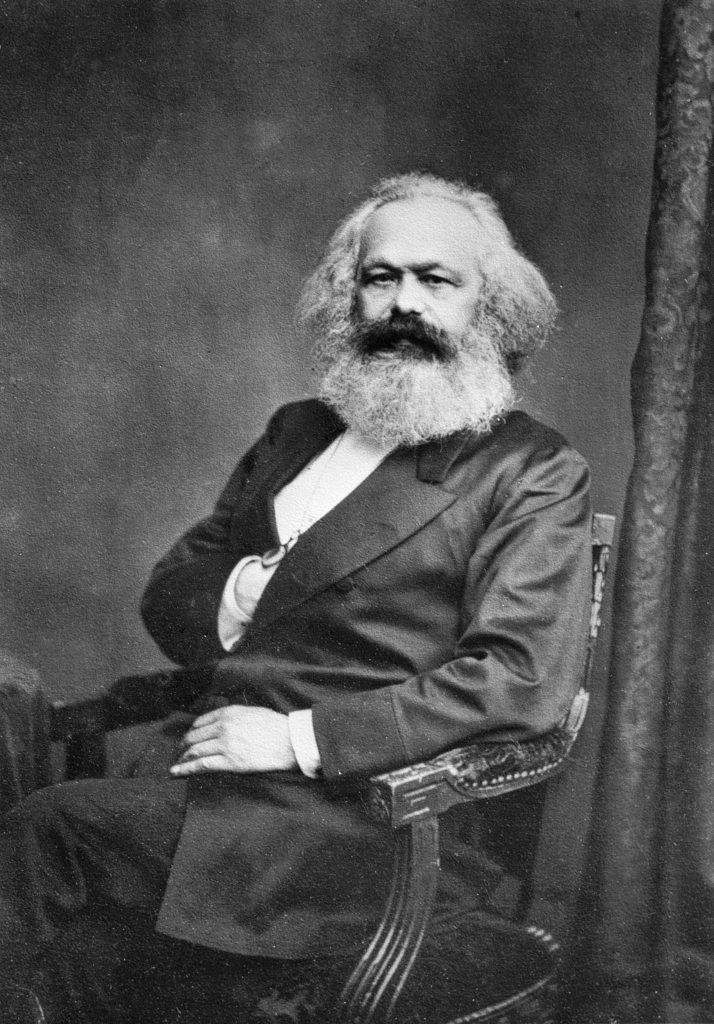
“Let the ruling classes tremble at a Communistic revolution. The proletarians have nothing to lose but their chains. They have a world to win … Working Men of All Countries, Unite!” ~ The Communist Manifesto
By the end of the 19th century, the working class was not getting poorer or becoming revolutionary — and Capitalism was starting to do more for the workers. A split developed as some Socialists decided to forget the Revolution and focus on making workers’ lives better. This gave rise to “Revisionism” in which the principle of class struggle was thrown out.
A Russian radical named Vladimir Lenin was closely following the debate. If workers weren’t becoming revolutionary on their own, he decided he would launch the revolution in their name.
The disaster of World War I set the stage.
News Report: “Austrian Archduke, Franz Ferdinand, was shot down by a Serbian patriot, and the greatest war the world had known exploded in Europe.”
A group of Russian soldiers mutinied. The Czar abdicated his throne. As chaos and anarchy exploded across Russia, Lenin and his Bolshevik party made their move, storming the winter palace and seizing power.
Russia was plunged into a brutal civil war that lasted 5 years and killed 7-12 million people. By the end, the Bolsheviks had won on the battlefield and with the people. A massive propaganda push named priests, political opponents and the rich as enemies of the people — then eliminated them.
“We can and must write in a language which sows among the masses hate, revulsion, and scorn toward those who disagree with us.” ~ Vladimir Lenin
Russia’s banks, churches and capitalist institutions were destroyed and replaced by the Communist party. Industry broke down and millions were executed, sent to Siberian prisons or died of starvation.
When the dust settled, Lenin had created the world’s first Socialist state — the Soviet Union. He planned to spread the revolution to the rest of the world, particularly the industrial countries of the West, and its biggest prize, America.
Lenin died from a stroke in 1924 at the age of 53. His successor, Joseph Stalin carried on the struggle.
News Report: “Joseph Stalin was the central figure around whom Russia revolved. Once he grabbed the reigns of power in the Soviet Union, he was never to relinquish them. With unswerving purpose, he welded the party government into a solid block of steel that crushed any opposition in its path. Other Russian politicals dared not even breathe a challenge in his direction. Purge after purge had proved such a move fruitless and fatal. The machinery of Stalin’s rule was too firmly anchored under the close scrutiny of the dictator.”
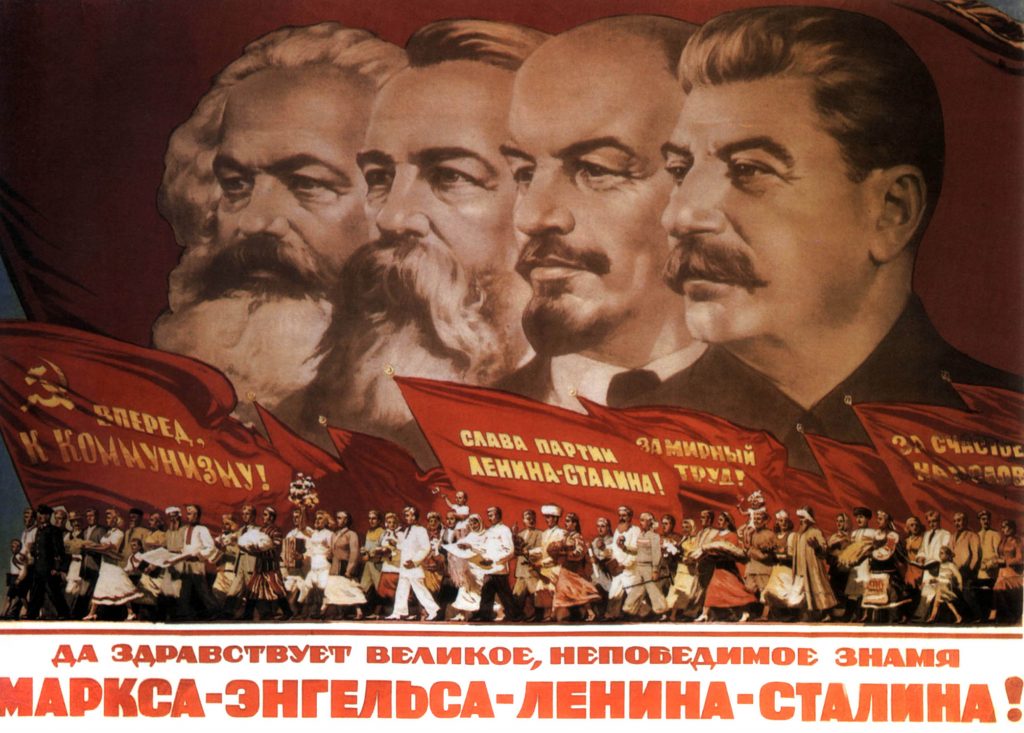
At the time, socialism had stalled in America. The U.S. had a strong labor movement inspired by Marxist principles that was using strikes and boycotts to create better conditions. The movement’s leader, Samuel Gompers, didn’t think a revolution led by intellectuals was necessary.
“The worst crime against working people is a company which fails to operate at a profit.” ~ Samuel Gompers
In the lead-up to World War I, America’s socialist factions split. The Socialist Party, supported mostly by Midwest farmers, opposed the war. The Labor Movement was in favor. When America went to war, the Labor Movement became the leading voice of America’s workers.
News Report: “By 1917, when the U.S. entered the first World War, Sam Gomper’s AFofL [American Federation of Labor] had grown to a membership of 2.5 million skilled workers — key men in the nation’s great war effort.”
It wasn’t until FDR’s New Deal was passed to restore America to prosperity after the Great Depression that some socialist ideas were tried, including social security, unemployment insurance and the 8-hour work day.
Franklin Delano Roosevelt: “The people of American have no quarrel with business. They insist only that the power of concentrated wealth shall not be abused.”
But back in Europe, socialism was branching out in unexpected directions. Lenin’s revolution in Russia proved for many that socialism was inevitable. But it also spawned a bastard child — Fascism.
An Italian Socialist named Benito Mussolini figured out he could swap the Italian people for the worker and launch his own revolution.
“The truth is that men are tired of liberty.” Benito Mussolini
News Report: “Benito had taken an unruly mob, a leaderless mob, and in few short years molded them into a slave state who dared not disobey his edicts. His word was law. The secret police saw to that. And when a crisis appeared that might threaten his iron grip upon the country, Il Duce really had to take to the balcony and speak to the masses. When force failed, his magnetic speeches succeeded. Promises flowed from his lips like the endless pouring of water over Niagara Falls. He played on national pride. He revived the hopes that Italy would soon return to world power as the Romans of old had once conquered the earth. Without a doubt, he proved an inspiration for Adolf Hitler, whose fascist party in Germany was still in its infancy. Mussolini preferred to stop the Austrian house-painter until 1934, when it became apparent that the man with the mustache was soon to become a world power to be reckoned with. Their first meeting in Venice proved to be a historic blending of two power madmen who were forced into a partnership by the enmity of the rest of the world. Together, they used the Spanish Revolution as a testing ground for their troops and weapons. The Axis came into being on the side of General Frankel in what proved to be the preliminary skirmish before World War II.”
Adolf Hitler followed suit in Germany, creating National Socialism, which mixed socialist principles with a heavy dose of racial supremacy and hatred of Jews.
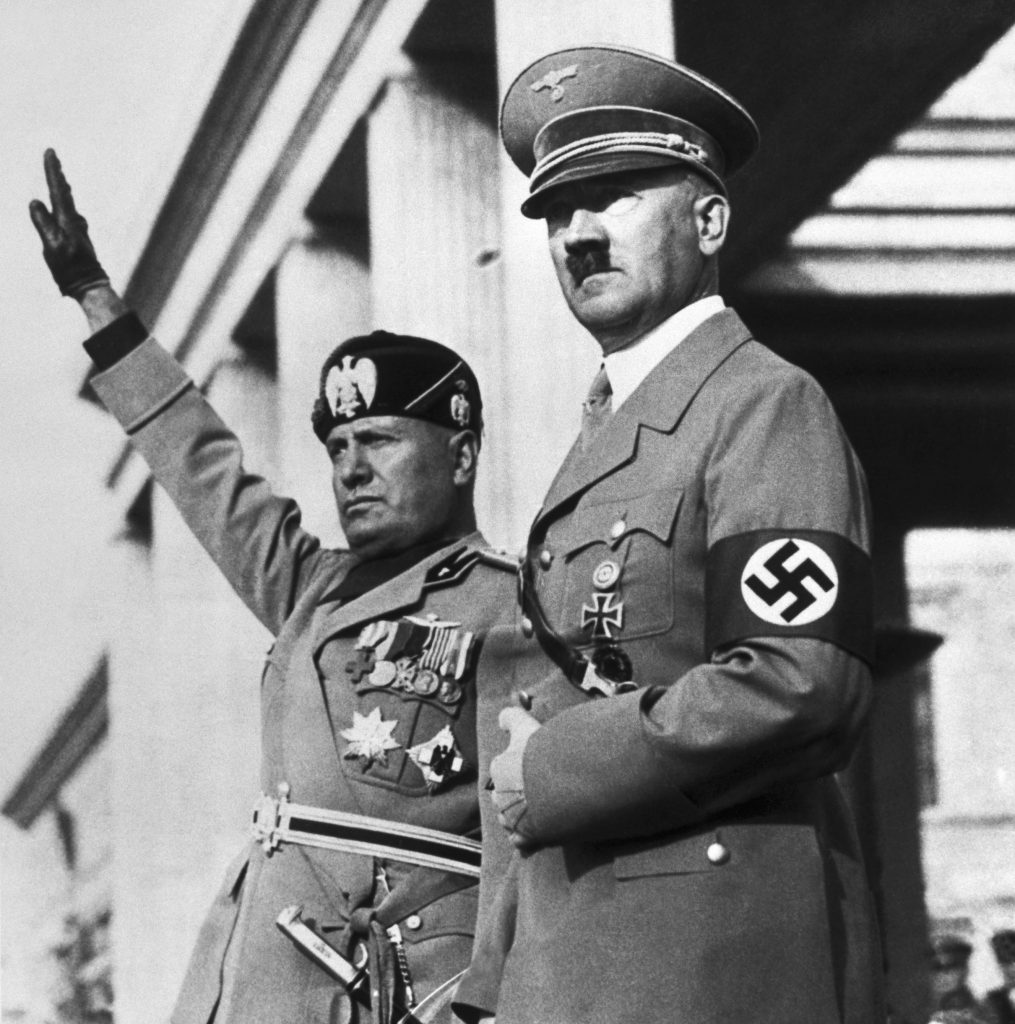
“We are Socialists, enemies, mortal enemies of the present capitalist economic system with its exploitation of the economically weak, with its injustice in wages, with its immoral evaluation of individuals according to wealth and money, instead of responsibility and achievement, and we are determined under all circumstances to abolish this system!” ~ Gregor Strasser, Nazi Party Official
Hitler and Mussolini started World War 2, causing widespread destruction and the death of 70-85 million people. Western Capitalist democracies joined the fight against the Nazis, but at its core, the war was between communists and fascists. Their armies lost a combined total of 15 million soldiers on the Eastern front, and when the smoke cleared, only Communism was left standing.
News Report: “For these Nazis, who once dreamed of conquering and ruling all the world, the war has ended. On other similar days of war, more fascists have died violently and terribly. Whole armies of the dead, who will never march against British Tommies or American Doughboys.”
With Soviet military gains, communism was imposed in Eastern Europe and North Korea. The people of these new Communist states became prisoners in their own countries.
News Report: “Since World War II, Communism, by force and by propaganda, has extended its frontiers into the heart of Europe. Russia’s newest and possibly most important gains have been in the Orient.”
Communism’s greatest expansion came in 1949 when Mao’s Red army conquered mainland China.
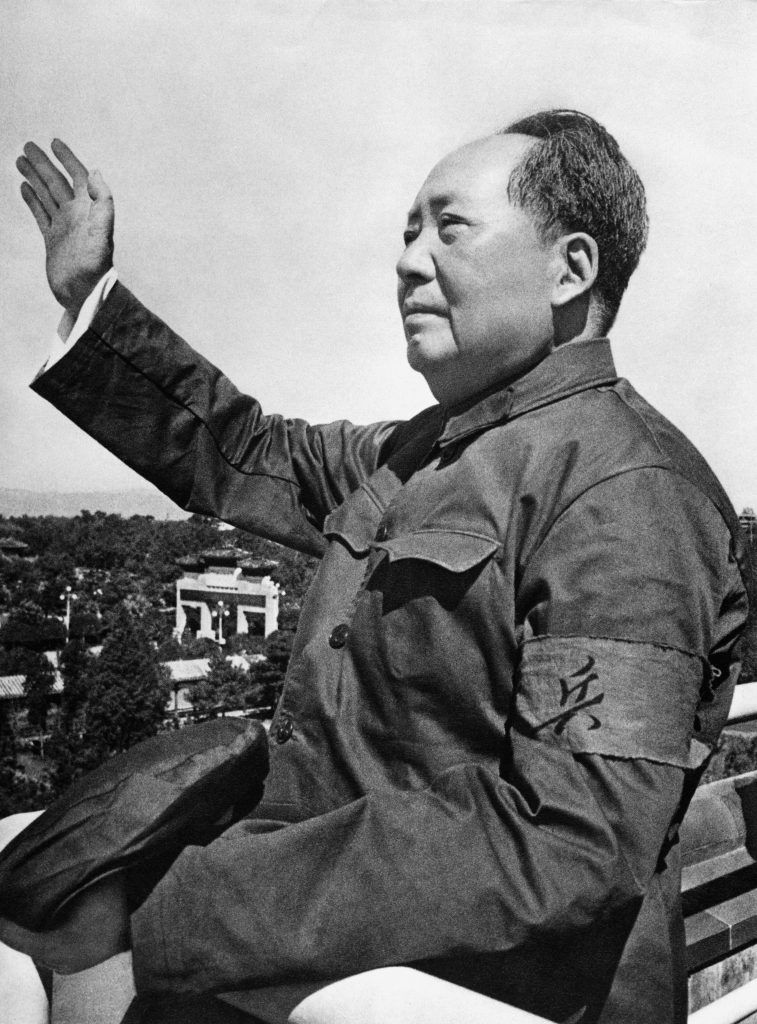
News Report: “The Red Leader’s blueprint for conquest, protracted guerilla war, united front, elimination of all opposition, has accomplished its aims.”
In return for a promise of lifelong security, the Chinese people gave total control to the Communist party. From now on, the party would dictate their lives, completely cutting the people off from their past in an attempt to create new human beings.
“Every Communist must grasp the truth: Political power grows out of the barrel of a gun.” ~ Mao Zedong
Mao launched his “Great Leap Forward” to rapidly transform China from an agricultural society to a collectivized modern industrial economy within 5 years. Instead, it dragged China back with an estimated 30-40 million Chinese peasants dying of starvation. Only in the last 30 years has China found economic success by embracing elements of free market capitalism.
While communism was busy destroying lives and hopes in Russia and China, Democratic Socialism was making gains in Britain and Western Europe. With World War II over, Prime Minister Churchill stood for election against socialist challenger, Clement Attlee. Together, the two men led Britain through the war. Now, they clashed over what type of government Britain should have.
“Socialism is a philosophy of failure, the creed of ignorance, and the gospel of envy.” ~ Winston Churchill.

“The evils that Capitalism brings differ in intensity in different countries, but, the root cause of the trouble once discerned, the remedy is seen to be the same by thoughtful men and women. The cause is the private ownership of the means of life; the remedy is public ownership.” ~ Clement Attlee
The British voted in Attlee on a promise to rebuild the country and institute a welfare state. Industries were nationalized, including coal, rail, steel, gas and electricity. There was free health care for all and generous old age pensions. But by the 1970s, it was clear the British economy couldn’t compete. Inflation reached 24%. Labor strikes were rampant. The welfare state had created a dependency state, and in 1979, Margaret Thatcher was elected to fix it.
Margaret Thatcher: “Britain was known for suffering from the British disease. Now we’re known for having the British cure, and people come to us, a newly confident country, to see exactly how we’ve done it.”
“The problem with socialism is that eventually you run out of other people’s money.” Margaret Thatcher

As Britain experimented with Democratic Socialism, the Soviet Union spread Communist revolution around the world.
News Report: “Castro swung closely aligned with the Communist Block and seized almost all United States property in Cuba.”
The U.S. tried to counter, but with both countries armed with nuclear weapons, an ideological Cold War was fought mostly in the shadows. Through the 1950s and 60s, the Communists seemed to be winning the war of ideas with some 60 newly independent nations in the developing world adopting some form of Socialism.
News Report: “In 1962, the United States and the Soviet Union stand on the verge of direct military confrontation.”
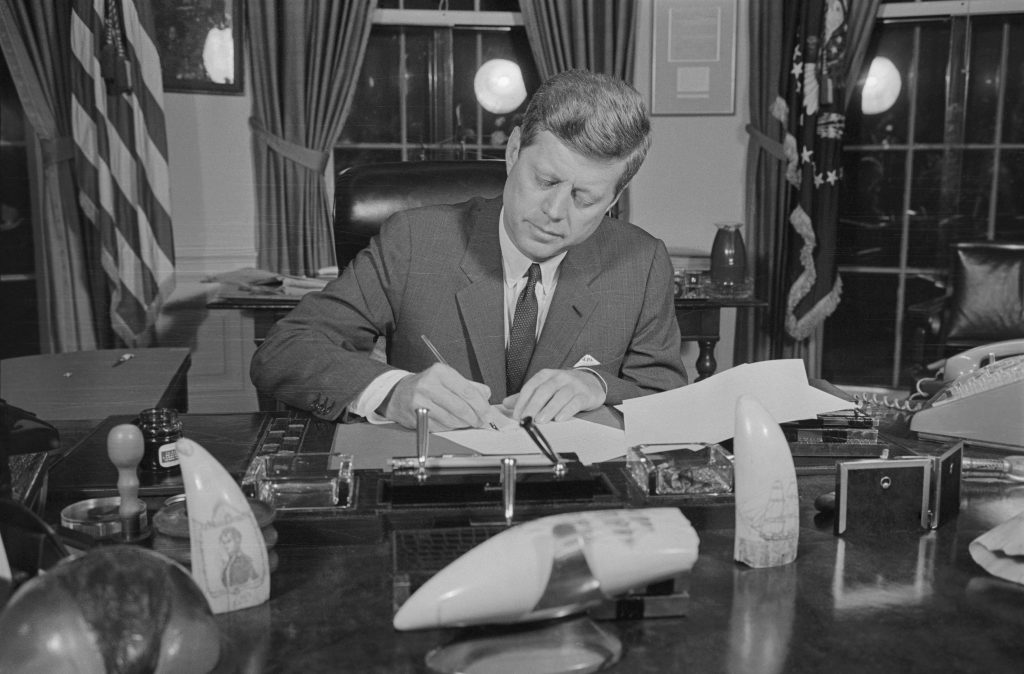
US President John F. Kennedy pushed back, bringing the world to the brink of nuclear war…
John F. Kennedy: “I have directed to continue to increase a close surveillance of Cuba and its military buildup. Should these offensive military preparations continue, thus increasing a threat to the hemisphere, further action will be justified.”
… before falling to a Marxist sniper’s bullet.
News Report: “John F. Kennedy has been in office for exactly 1,036 days. There are some important accomplishments. He has negotiated a nuclear Test Ban Treaty with the Russians, established the Peace Corps, set in motion the steps that would put American on the moon, but there are also many doubts. Beneath the glitter and the glamour, people still wonder about the substance of the Kennedy presidency. JFK hopes to still all doubts in a second term. Texas, with its 24 electoral votes, is considered critical to reelection in 1964. A political tour of the state has mounted. There remains only Dallas to be won back into the Kennedy electoral fold.”
In Vietnam, the U.S. drew a line, taking military action to support the South Vietnamese against the communist North and stem the tide of Communism. In the West, Soviet intelligence saw an opening with the Counterculture movement, where young people motivated by Marxist principles, wanted to overthrow the capitalist establishment from within.
News Report: “A companion peace demonstration brings out 50,000 marchers in downtown San Francisco. They parade two miles along Market Street, pacifists and hippies together. Gigantic Kezar Stadium holds the mass rally, where anti-war songs and speeches figure a short scuffle between pro and con factions. No one was injured.”
News Report: “The hippie’s celebration of loving attitudes often takes place in a happening, which for them is a beautiful, meaningful event that occurs spontaneously. On most weekends, spontaneously or otherwise, this seems to be a happening on Haight Street, complete with music and jostics.”
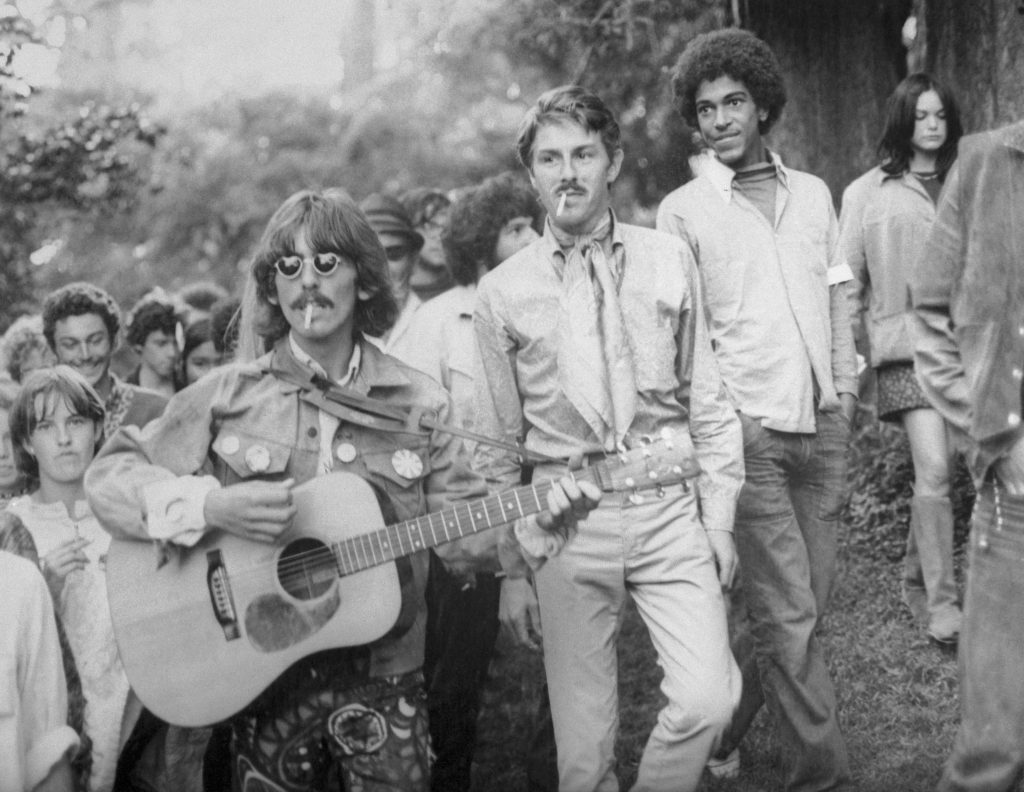
The KGB funded and manipulated counterculture groups and left-wing political organizations in the West to sow dissent, while also helping train and support Marxist terrorist groups like the Red Army Faction in West Germany, the Red Brigade in Italy and the Weathermen Underground in the U.S. who wanted to overthrow Western governments and replace them with Communism.
“The most powerful single force in the world today is neither Communism nor Capitalism, neither the H-bomb nor the guided missile — it is man’s eternal desire to be free and independent.” ~ John F. Kennedy
After Kennedy’s assassination, civil unrest spread as riots, protests and terror attacks became commonplace in the U.S. and West Europe.
In 1984, a KGB defector named Yuri Bezmenov explained the Soviet strategy to ideologically subvert the west. Their goal was to “change the perception of reality for every American, so they couldn’t draw sensible conclusions on defending themselves, their families, their community, and their country.” He described the first stage taking 15 to 20 years to demoralize a nation by educating one generation of students in Marxist-Leninist ideology without being counterbalanced by the basic values of Americanism.
G. Edward Griffin Interview With KGB defector, Yuri Bezmenov, (1984):
G. Edward Griffin: “The Soviets use the phrase ‘ideological subversion.’ What do they mean by that?”
Yuri Bezmenov: “Idealogical subversion is the process, which is legitimate, overt and open. You can see it with your own eyes. But in reality, the main emphasis of the KGB is not in the area of intelligence at all, according to my opinion and [the] opinion of many defectors of my caliber. Only about 15% of time, money and manpower is spent on espionage and such. The other 85% is a slow process which we call either idealogical subversion or active measures… or psychological warfare.
What it basically means is, to change the perception of reality of every American to such an extent, that despite the abundance of information no one is able to come to sensible conclusions in the interest of defending themselves, their families, their community and their country. It’s a great brainwashing process which goes very slow and is divided in four basic stages. The first one being “demoralization.”
It takes from 15 to 20 years to demoralize a nation. Why that many years? Because this is the minimum number of years which it requires to educate one generation of students in the country of your enemy exposed to the ideology of the enemy. In other words, Marxism-Leninism ideology is being pumped into the soft heads of at least three generations of American students, without being challenged or counterbalanced by the basic values of Americanism; American patriotism.
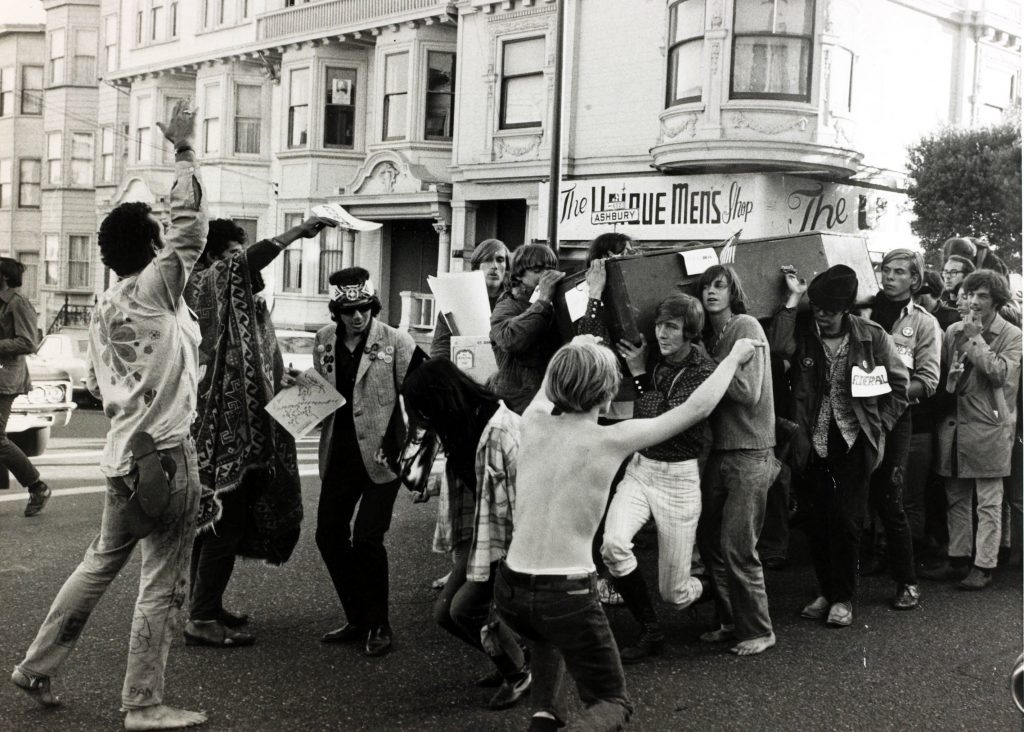
The result? The result you can see. Most of the people who graduated in the 60s, dropouts or half-baked intellectuals, are now occupying the positions of power in the government, civil service, business, mass media, and educational systems. You are stuck with them. You cannot get rid of them. They are contaminated. They are programmed to think and react to certain stimuli in a certain pattern. You cannot change their mind, even if you expose them to authentic information. Even if you prove that white is white and black is black, you still cannot change the basic perception and the logic of behavior.
In other words, [for] these people, the process of demoralization is complete and irreversible. To rid society of these people, you need another 15 or 20 years to educate a new generation of patriotically minded and common sense people who would be acting in favor and in the interests of the United States’ society. Exposure to true information does not matter anymore. A person who was demoralized is unable to assess true information. The facts tell nothing to him. Even if I shower him with information, with authentic proof, with documents, with pictures. Even if I take him by force to the Soviet Union and show him a concentration camp, he will refuse to believe it.”
To watch the full interview with G. Edward Griffin and KGB defector, Yuri Bezmenov, on ideological subversion and communist propaganda efforts of the former Soviet Union to destroy the United States from within and turn its citizens against free market capitalism and Americanism, please visit G. Edward Griffin’s website.
Despite the chaos sown in the 1960s and 70s by Russian subversion, free market capitalism was slowly winning the Cold War. Even as the U.S. was forced to abandon Vietnam, communism had reached a high water mark and was on the decline, while the West won the space race and put a man on the moon. Now, two shocking failures played out on different sides of the globe to hasten the end.
Now, two shocking failures played out on different sides of the globe. In the U.S., a charismatic preacher named Jim Jones founded the People’s Temple, a communist religious movement combining elements of Christianity with Socialism and racial equality. The church moved from San Francisco to South America to create a socialist paradise called Jonestown, free of media scrutiny. When some of Jones’ followers murdered a U.S. Congressman investigating claims the church was keeping members from leaving, Jones ordered some 900 members to drink cyanide laced Kool-aid in a mass murder/suicide that horrified the world. This is where we get the expression, “Don’t drink the Kool-aid.”
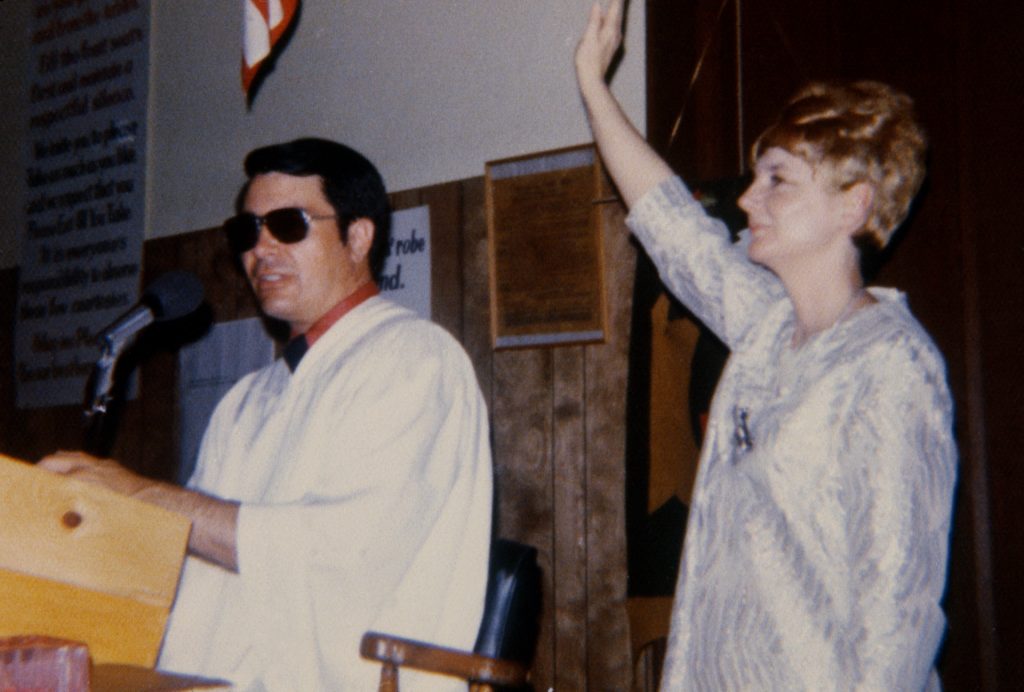
“We didn’t commit suicide. We committed an act of revolutionary suicide protesting the conditions of an inhumane world.” ~ Jim Jones’ death tape
Meanwhile, in Southeast Asia, a Maoist communist rebel group called the Khmer Rouge seized Cambodia after the U.S. withdrew from Vietnam. At the direction of their leader, Pol Pot, they emptied out the cities and attempted a radical collectivization of agriculture, ultimately murdering 1.5-3 million people. Some 25% of the population perished on the “killing fields” of Cambodia.
“When I die, my only wish is that Cambodia remain Cambodia and belong to the West. It is over for communism, and I want to stress that.” ~ Pol Pot
Despite the Soviet Union’s efforts to spread Communism worldwide, it was failing everywhere. It was in this weakened state that Ronald Regan became U.S. President, and orchestrated the Soviet Union’s collapse.
U.S. President, Ronald Reagan: “General Secretary Gorbachev, if you seek peace, if you seek prosperity for the Soviet Union and Eastern Europe, if you seek liberalization, come here to this gate. Mr. Gorbachev, open this gate. Mr. Gorbachev, tear down this wall.”

News Report: “East German troops took patrol of the key section of the Berlin Wall at the Brandenburg gate early this morning. They stopped the party, but any hopes they have of stopping the West Berliners destroying the wall were soon dashed as dozens of young men pulled on a rope and chains. A chant went up, ‘Down with the wall!’ The reply was swift.”
“I have seen the rise of fascism and communism. Both philosophies glorify the arbitrary power of the state… But both theories fail. Both deny those God-given liberties that are the inalienable right of each person on this planet, indeed, they deny the existence of God.” ~ Ronald Reagan
Socialism’s most recent failure is Venezuela. With the world’s largest proven oil reserves, Venezuela was one of the richer countries in the world. But within 20 years of a populist socialist government coming to power, the country’s economy has been destroyed.
News Report: “The political chaos here is only overshadowed by the economic disaster. Venezuela is now a country of queues. There are shortages of everything, from money to food and basic living essentials. On street corners, people rummage through rubbish, eating what they can find. These men aren’t down-and-outs, they’re just starving.”

Inflation has spiked as high as 2.3 million percent and some 4 million Venezuelans have been forced to flee their country to survive.
“The historical experience of socialist countries has sadly demonstrated that collectivism does not do away with alienation but rather increases it, adding to it a lack of basic necessities and economic inefficiency.” ~ Pope John Paul II
The problem with concentration of power in socialist governments is that eventually, you end up with a corrupt leader or ruling class that claims to be morally superior because they are providing for the people.
As power concentrates in the bureaucracy, fewer people make the decisions. The bureaucrats get overwhelmed, and the economy suffers from inefficiency and corruption.
For government bureaucracies, process is all that matters. Being cost effective, efficient and profitable is unimportant. The usual result is a scarcity of essential goods and the heavy boot of the state to crush dissent.
“Socialism easily accepts despotism. It requires the strongest execution of power — power sufficient to interfere with property… Power tends to corrupt and absolute power corrupts absolutely.” ~ Lord Acton
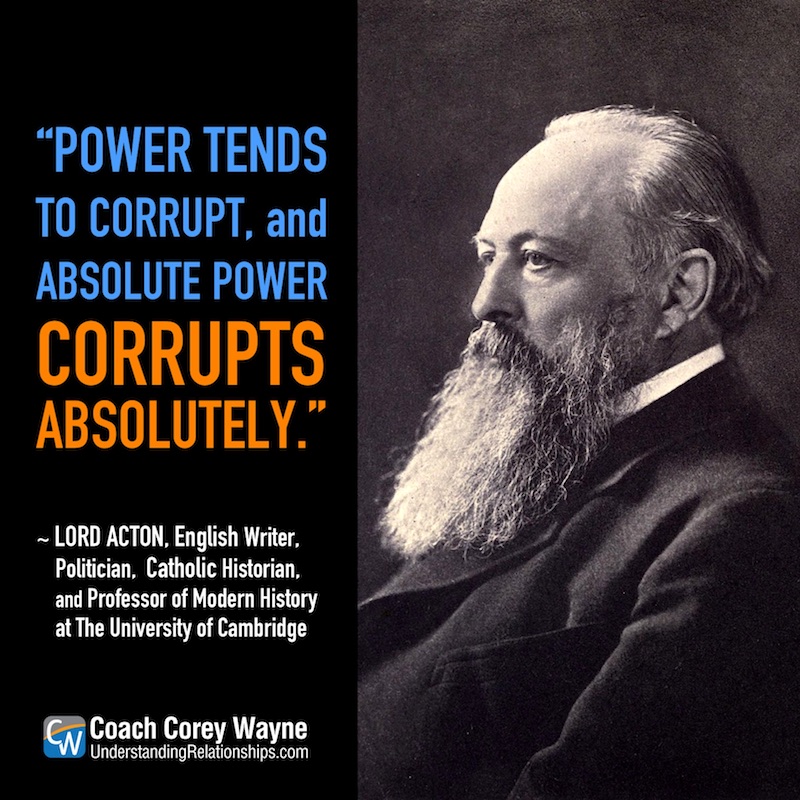
The problem with real socialism has always been in the execution. All the different experiments have failed, with governments oppressing and killing their people, or being forced to adopt capitalism to survive, as done in China. The reason is socialist economic systems suffer from a fatal flaw. When private property and free markets are eradicated, there is no rational calculation of supply and demand or coordination of the division of labor and capital. Incentives are distorted, and there is no way to get rid of inefficient production methods. These defects doom a true socialist economy to failure.
“Socialism in general has a record of failure so blatant that only an intellectual could ignore or evade it.” ~ Thomas Sowell
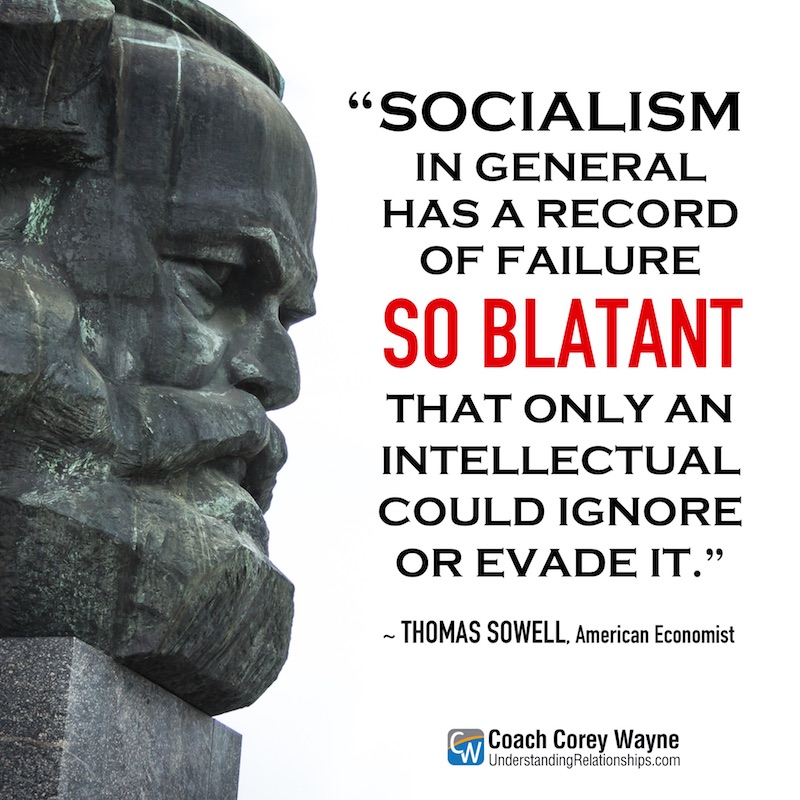
Even so, a large percentage of people still view Socialism favorably and believe it should play a role in determining the future.
Alexandria Ocasio-Cortez: “The reason we’re able to shake up Washington D.C. is because it’s not me, it’s us that’s shaking up the country. It’s the attitude that we will accept all people and reject no one that is shaking up Washington D.C.”
“To me, what socialism means is to guarantee a basic level of dignity. It’s asserting the value of saying that the America we want and the America that we are proud of is one in which all children can access a dignified education. It’s one in which no person is too poor to have the medicines they need to live.” ~ Alexandria Ocasio-Cortez
What drives its supporters is understandable — a well-meaning desire to provide a certain level of security to all people. In theory, everyone should want that. The questions are: can it be done without concentrating too much power in the hands of government — and without running out of other people’s money?
With the U.S. 21 trillion dollars in debt, Bernie Sanders and other candidates are campaigning for democratic socialism based on the Nordic model — an expansion of the welfare state to include healthcare and education for all, and greater government control of energy and agriculture to combat climate change.
“Denmark is far from a socialist planned economy. Denmark is a market economy. The Nordic model is an expanded welfare state which provides a high level of security for its citizens, but it’s also a successful market economy with much freedom to pursue your dreams and live your life as you wish.” ~ Lars Rasmussen, Danish Prime Minister
The truth is, every successful nation in the world got that way with free market capitalism. It’s the economic engine that makes social welfare sustainable. The challenge is figuring out how far we can expand social welfare without crippling the economy, infringing on individual freedom and stifling initiative.
“As I see it, there are two great forces of human nature: self-interest, and caring for others. Capitalism harnesses self-interest in helpful and sustainable ways, but only on behalf of those who can pay. Philanthropy and government aid channel our caring for those who can’t pay, but the resources run out before they meet the need. But to provide rapid improvement for the poor we need a system that draws in innovators and businesses in a far better way than we do today.” ~ Bill Gates

With Socialism back on the ballot, there needs to be an open and honest debate about its failures. Both sides should admit what they want and explain how they plan to pay for it. And for those pushing Democratic Socialism, they should heed Einstein’s warning and explain how they’d protect individual freedom and not stifle economic growth and initiative. The last thing we want is a stagnant or shrinking economy that stifles the next generation of Microsofts, Apples, Amazons, and Teslas, or the innovators trying to solve our most pressing problems.
In the final analysis, perhaps we’ll find the best solutions come when government partners up with private enterprise as NASA has with Elon Musk’s SpaceX to reduce the cost of delivering satellites into orbit, while advancing the prospects of manned space exploration and the colonization of Mars. And as we stand on the brink of the greatest technological advances in history, we should also answer the question — “Why Capitalism?”
“The genius of capitalism lies in its ability to make self-interest serve the wider interest. The potential of a big financial return for innovation unleashes a broad set of talented people in pursuit of many different discoveries. This system, driven by self-interest, is responsible for the incredible innovations that have improved so many lives.” ~ Bill Gates
Get the Book “How To Be A 3% Man”
*Amazon and the Amazon logo are trademarks of Amazon.com, Inc. or its affiliates. As an Amazon Associate I earn from qualifying purchases. **Free with a new Audible.com membership
*Amazon and the Amazon logo are trademarks of Amazon.com, Inc. or its affiliates. As an Amazon Associate I earn from qualifying purchases.
How to Be a 3% Man
Paperback | $29.99
How to Be a 3% Man
Hardcover | $49.99
How to Be a 3% Man
Paperback | $29.99
How to Be a 3% Man
Hardcover | $49.99
*Amazon and the Amazon logo are trademarks of Amazon.com, Inc. or its affiliates. As an Amazon Associate I earn from qualifying purchases.
Get the Book “Mastering Yourself”
*Amazon and the Amazon logo are trademarks of Amazon.com, Inc. or its affiliates. As an Amazon Associate I earn from qualifying purchases. **Free with a new Audible.com membership
*Amazon and the Amazon logo are trademarks of Amazon.com, Inc. or its affiliates. As an Amazon Associate I earn from qualifying purchases.
Mastering Yourself
Paperback | $49.99
Mastering Yourself
Hardcover | $99.99
Mastering Yourself
Paperback | $49.99
Mastering Yourself
Hardcover | $99.99
*Amazon and the Amazon logo are trademarks of Amazon.com, Inc. or its affiliates. As an Amazon Associate I earn from qualifying purchases.
Get the Book “Quotes, Ruminations & Contemplations”
*Amazon and the Amazon logo are trademarks of Amazon.com, Inc. or its affiliates. As an Amazon Associate I earn from qualifying purchases. **Free with a new Audible.com membership
*Amazon and the Amazon logo are trademarks of Amazon.com, Inc. or its affiliates. As an Amazon Associate I earn from qualifying purchases.
Quotes, Ruminations & Contemplations
Paperback | $49.99
Quotes, Ruminations & Contemplations
Hardcover | $99.99
*Amazon and the Amazon logo are trademarks of Amazon.com, Inc. or its affiliates. As an Amazon Associate I earn from qualifying purchases.
If you have a question you would like me to consider answering in a future Video Coaching Newsletter, you can send it (3-4 paragraphs/500 words max) to this email address: [email protected]
If you feel I have added value to your life, you can show your appreciation by doing one of the following three things:
- Make a donation to my work by clicking here to donate via PayPal anytime you feel I have added significant value to your life. You tip your favorite bartender, right? How about a buck... $2... $3... $5... $10... $20... what ever YOU feel its worth, every time you feel I have given you a good tip, new knowledge or helpful insight. Please feel free to donate any amount you think is equal to the value you received from my eBook & Home Study Course (audio lessons), articles, videos, emails, newsletters, etc.
- Referring your friends and family to this website so they can start learning and improving their dating and relationship life, happiness, balance and overall success in every area of their lives too!
- Purchase a phone/Zoom (audio only) coaching session for yourself or a friend by clicking here. Download the Amazon.com Kindle version of my book to your Kindle, Smartphone, Mac or PC for only $9.99 by clicking here. Get the iBook version for $9.99 from the iBookstore by clicking here. Get the Audio Book for FREE $0.00 with an Audible.com membership by clicking here or buy it for $19.95 at Amazon.com by clicking here. Get the iTunes Audio Book for $19.95 by clicking here. That way, you'll always have it with you to reference when you need it most. Thank you for reading this message!
From my heart to yours,

Corey Wayne
Author, Speaker, Peak Performance Coach, Entrepreneur
Click Anywhere on Today’s Instagram Image Below & You’ll Be Taken To My Instagram Page. When you get to my Instagram page, click the “Follow” Button so you can follow me on Instagram. I upload several new Instagram photos per week.















John says
The United States pretends to be a democracy based on capitalism, in actual fact, it is an oligarchy where wealthy business interests decide what happens. Witness the ‘financial crisis’. Deregulated banks make terrible decisions and face bankruptcy. In a capitalist society, they would just go bankrupt. In an oligarchy, they are saved by the taxpayer!
So you have capitalism for the workers and socialism for the corporations, the worst of both worlds.
Also, taxpayers money is squandered on foreign wars to make profits for privately owned oil companies? It could finance a single-payer health service. A lot more useful for the average person.